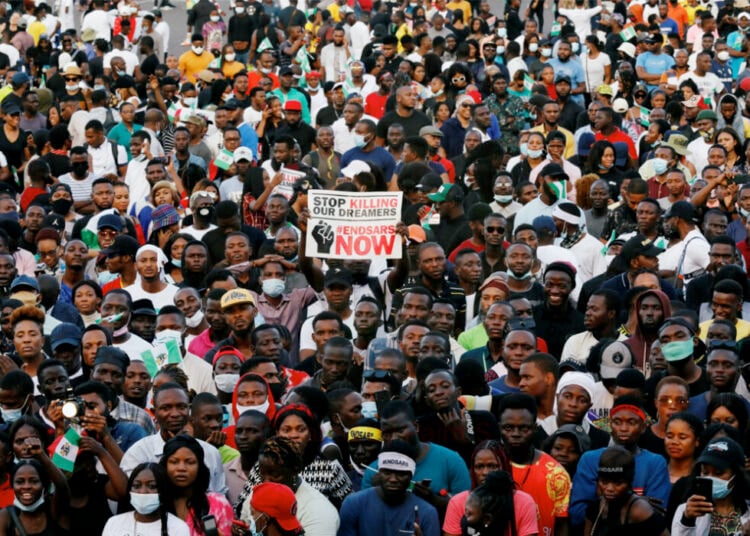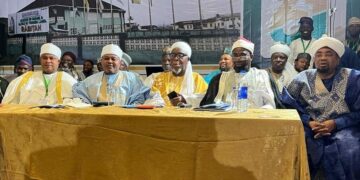Five years after the #EndSARS protests over police brutality and governance failure, a non-governmental organisation, Global Rights, has renewed its call for justice and accountability for the alleged killings of peaceful protesters at the Lekki Toll Gate in Lagos State on October 20, 2020.
In a statement by Global Rights executive director, Abiodun Baiyewu, on Monday, the justice advocacy group condemned the continued lack of accountability, warning that Nigeria’s democracy was “on tenterhooks.”
“The wounds of 20.10.20 still ache and remain ever fresh for the families and loved ones of the victims,” said Baiyewu. “Many remain unacknowledged, their families uncompensated, and their killers unpunished.”
She recalled that on that fateful night in 2020, Nigerian security forces allegedly opened fire on unarmed protesters who were waving the national flag and singing the national anthem.
The protest was part of a nationwide movement calling for the disbandment of the notorious Special Anti-Robbery Squad (SARS) arm of the Police accused of widespread human rights violations.
Despite public outrage and the establishment of judicial panels across several states, no individual has been held accountable for the killings at Lekki Toll Gate. The panels’ recommendations remained largely ignored, and promised reforms have yet to materialised.
“The reports of judicial panels of inquiry… have largely been ignored, and the reforms demanded by citizens remain unimplemented,” Baiyewu stated. “Instead, Nigeria’s civic space continues to shrink.”
The statement highlighted how the five core demands of the 2020 protests — justice for victims of police abuse, compensation for families, oversight of police misconduct, reform of policing practices, and better welfare for officers — have remained unmet.
This failure, Global Rights said, was further exposed during the #EndBadGovernance protests of 2024, where at least 30 citizens were reportedly killed and dozens, including minors, detained during peaceful demonstrations.
“The haunting images of malnourished children being charged with treason and standing trial for protesting remain a stain on our collective conscience — just as indelible as the memories of October 20, 2020,” the statement read.
The organisation criticised the government’s increasing use of legislation like the Cybercrime Act to target journalists, activists, and everyday citizens expressing dissenting opinions online.
“This practice erodes the very foundation of our democracy and sends a dangerous message — that freedom of expression exists only on paper,” Baiyewu warned.
As Nigeria marks the fifth anniversary of the Lekki Toll Gate tragedy, Global Rights issued four key demands to the Nigerian government: identify, arrest, and prosecute those who ordered and carried out the shootings, as well as those involved in covering it up; implement comprehensive policing reforms, starting with the full implementation of the judicial panel recommendations; ensure law enforcement agencies are trained to manage protests in a rights-respecting and constitutionally compliant manner and – end the misuse of laws like the Cybercrime Act to target dissent and ensure protection of freedom of expression and peaceful assembly.
Global Rights recalled how youth-led movements from Kenya to Nepal and Madagascar are reshaping democratic engagement through peaceful protest.
“While some governments have resorted to repression, others have learned to engage these movements through dialogue and reform — understanding that protests are not threats, but expressions of democracy in action,” Baiyewu said, urging the Nigerian state to treat dissent as an essential democratic right, not a threat to national security.
“No government enjoys criticism — but strong democracies use it as feedback,” stated Baiyewu. “The right to protest is not a privilege granted by the state; it is a democratic right that protects the state itself from tyranny.”





